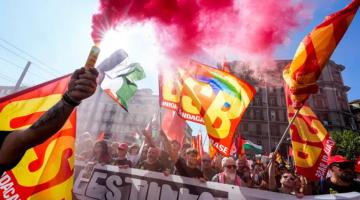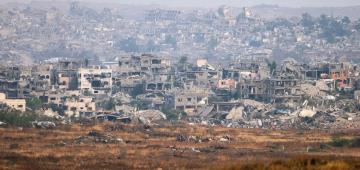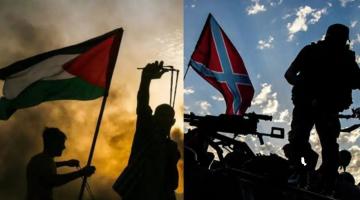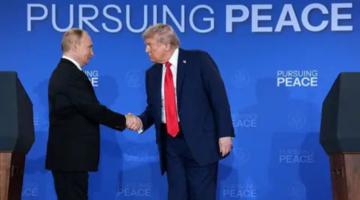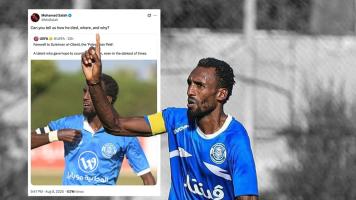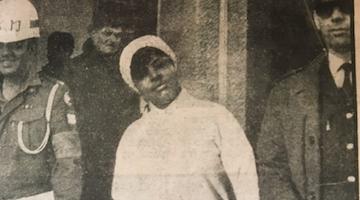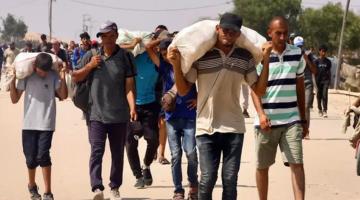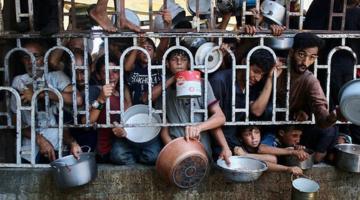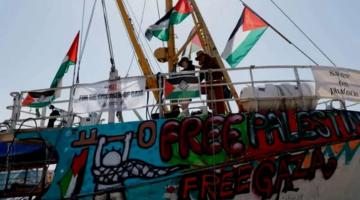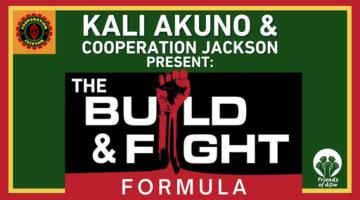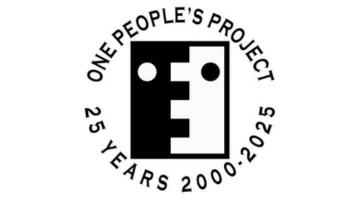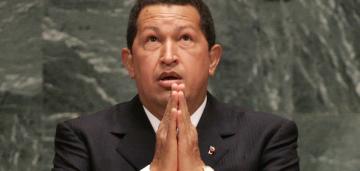Israel's brutal treatment of Black solidarity activists proves the truth that resistance to settler colonialism comes with a price. For Black Americans standing with Palestine, that price has always been disproportionately high.
Zoharah Simmons’ first trip to Israel and its occupied territories in 1994 got off to an inauspicious start. Born Gwen Robinson in Memphis, Tennessee, the great granddaughter of a slave and a former organizer for the Student Nonviolent Coordinating Committee who volunteered to work in Mississippi during Freedom Summer, Simmons was hardly unfamiliar with European settler colonialism or the violence that is its motor.
She was, however, caught off guard by what she experienced upon her arrival in Tel Aviv as part of a peace delegation with the American Friends Service Committee, a social justice organization founded by the Quakers.
First, there was the matter of getting past Israel’s immigration and customs agents. Of the seven-member delegation, Simmons was the lone African American and not knowing at the time that there are Palestinians who are dark-skinned as she is, she was perplexed by her grilling from Israeli agents. She told Black Agenda Report:
“They held me for hours questioning me about my name ‘Zoharah.’ They wanted to know if I was Palestinian. I was quite mouthy with them so I kept responding: ‘Do I look like I am Palestinian?’ And they looked at me like I was crazy. They kept asking me: ‘Is your mother Palestinian? Is your grandmother Palestinian?’"
The interrogation ended only when someone with the American Friends Service Committee managed to get hold of a liberal legislator from the Knesset, the Israeli Parliament.
“He had to come to the airport to vouch for me and literally walk me out of the airport. All my comrades were crying.”
It was all downhill from there. The delegation was mortified by the privation in Gaza and the sight of Israeli soldiers repeatedly “pushing old Palestinian men and women to the ground, and smacking Palestinian children around,” especially at the checkpoints, which essentially required Palestinians to confront their oppressors daily. Simmons told BAR:
“It was terrible. It was a police state. I had never seen anything like it. (At SNCC) we were never surrounded by checkpoints and soldiers armed to the teeth on a daily basis!
As a Black person growing up in the Jim Crow South I knew racism when I saw it but the racism of the Israelis towards the Palestinians was so overt, and Mississippi was mild by comparison. I can’t unsee what I saw there.”
Simmons is of the first generation of African Americans to connect their liberation struggle in the U.S. with a broader global revolution against European settler colonialism. And her treatment by immigration and customs agents at the Tel Aviv airport anticipated that of Christian Smalls, the co-founder of the Amazon Labor Union, who was the lone African American activist among 21 who boarded the Handala, an international aid ship, attempting to deliver food, baby formula, diapers and medicine to Gaza. When the Israel Defense Forces intercepted and boarded the vessel, they singled out Smalls, beating and choking him.
In an Instagram Post, the Gaza Freedom Flotilla wrote:
“The Freedom Flotilla Coalition confirms that upon arrival in Israeli custody, US human rights defender Chris Smalls was physically assaulted by seven uniformed individuals. They choked him and kicked him in the legs, leaving visible signs of violence on his neck and back. … This level of force was not used against other abducted activists.”
When his lawyer met with him, Chris was surrounded by six members of Israel’s special police unit. This level of force was not used against other abducted activists. We condemn this violence against Chris and demand accountability for the assault and discriminatory treatment he faced.”
The mistreatment of two African Americans 31 years apart for daring to articulate solidarity with another colonized people shines a light on an enduring fact of public life: with the exception of the Palestinians themselves, no group has paid a higher price for supporting an end to Israel’s illegal occupation than Blacks.
Beginning in earnest with Malcolm X, and growing to a crescendo with SNCC and the Black Panthers following the 1967 war pitting Israel against Egypt, Syria, and Jordan, African political thought moved beyond integrationist domestic reform to a global understanding of settler colonialism. In his book, Black Power and Palestine: Transnational Countries of Color, the author Michael Fischbach wrote:
“Their championing of the Palestinians also said much about how black militants viewed themselves. Siding with the Palestinian national resistance became a sine qua non for radicals in the 1960s and early 1970s who perceived themselves as revolutionaries. The Palestinians also mirrored their image of themselves, the concept of identity they were creating: militant warriors, colonized people of color getting off their knees and fighting back against alien oppression. In so doing, they wanted to overturn the existing structures of power that enslaved them.”
An article that appeared in SNCC’s newsletter in July of 1967 drove a wedge between the organization and its white, liberal patrons and its moderate supporters, including Martin Luther King, Jr. Entitled “The Palestine Problem: Test Your Knowledge” consisted of thirty-two statements about Israel that were strongly critical of Zionism, questioning not only Israel’s illegal annexation of Palestinian land following the 1967 war but whether the United Nations had the authority to carve out a portion of colonial Palestine to give to Jews 20 years earlier. Fischbach wrote:
“Throughout the late summer and fall of 1967 SNCC continued to fight back against its critics and uncompromisingly state its support of the Palestinians against Israel. This was more than just defending a stance; it was SNCC defending its very identity and vision of principled activism. Two weeks after the brouhaha over the newsletter article first broke, H. Rap Brown spoke at an event titled ‘Vietnam and Black America,’ which drew three thousand people at the Village Theater in New York City on August 29, 1967. Brown criticized the white antiwar movement, calling it “hypocritical” for protesting against the war in Vietnam but remaining silent when Israel attacked the Arabs. ‘When the shit hit the fan in the Middle East,’ Brown intoned, ‘you dug in your pockets and supported it."
So heated was the debate that at a conference of civil rights organizations in August of 1967, a group of SNCC activists pulled a gun on King’s deputy at the Southern Christian Leadership Conference, Reverend James Bevel, when he was critical of a resolution critical of Israel, according to Fischbach.
In tandem with the controversial Vine City Paper written by Simmons and a few other SNCC activists, proposing the purge of whites from the organization, SNCC’s principled support for Palestine living under occupation effectively shuttered the organization, causing donors to fall away in droves.
Simmons, who would go on to become a religion professor at the University of Florida, would return to Israel in 2004 with another delegation that included another Black woman from South Africa. This time they entered through Jordan but again Israeli immigration and customs officials singled out the only Black people, Simmons and the South African woman, interrogating them both for hours before finally waving them through.
By then, the situation in Gaza, in particular, had grown even worse, with helicopters circling overhead 24 hours a day, 7 days a week. What Simmons remembers most vividly is the Black South African delegate who seemed shocked by what she saw and kept saying, sometimes mumbling to herself:
“This is worse than apartheid.”
Jon Jeter is a former foreign correspondent for the Washington Post. He is the author of Flat Broke in the Free Market: How Globalization Fleeced Working People and the co-author of A Day Late and a Dollar Short: Dark Days and Bright Nights in Obama's Postracial America. His work can be found on Patreon as well as Black Republic Media.

